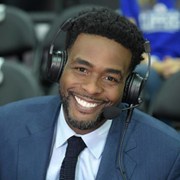- Level Foundation
- Duration 15 hours
- Course by Morehouse College
-
Offered by

About
Sports have become an ever-present reflection of American culture, and an important symbol of the divisions and alliances in our society. Sports and political change walk hand in hand in America. The way that athletes and institutions deal with questions of race, economic hardship, nationalism, and political ties have become central to the way that we understand ourselves and our society. And yet, there are those who would prefer their sports free of controversy and opinion. Dedicated athletes, coaches, and media personalities have pushed back against this refrain, demanding to be seen not just as entertainers but as fully formed humans with political opinions and experiences. Their struggles against injustice have changed the face of America and kicked off a reckoning within modern-day sports. How does context inform the shape and outcome of protests? What is it about sports that provides space — or doesn't — for political statements? Why do some of us expect athletes to be activists, when others would rather they "shut up and dribble"? We'll explore all of these questions and more in this class. Your professor will be NBA All-Star and TNT Sports journalist and commentator Chris Webber, who leads interviews with iconic activists, including John Carlos and Jemele Hill as they wrestle with the meanings and outcomes of their activism. You'll read and watch primary source documents about acts of protest, and academic and journalistic work that reckons with the legacies of those acts. By the end of the course, you'll have a better understanding of historical and contemporary protest moments, and be able to create and apply new ways of thinking about the activism within the world of sports in history and today.Modules
The Year that Shook America
4
Videos
- Course Introduction
- Black Power Rocks the Olympics
- Democracy Now! Interview pt. 1
- Democracy Now! Interview pt. 2
1
Readings
- Reading: Timeline of 1968
Backlash at Home
1
Assignment
- Responses to the New York Times Letters
1
Videos
- Howard Cosell Responds to Protest
1
Readings
- New York Times: Black Power and the Olympic Games
Legacy
1
Assignment
- Black Power at The Olympics - Legacy and Outcomes
2
Videos
- John Carlos Interview
- John Carlos with MLK Jr.
One of the Greats
1
Assignment
- Haywood's Early Career
4
Videos
- Spencer Haywood Career Highlights
- 1986 U.S. Olympic Basketball Team
- Haywood Interview pt. 2
- Haywood Interview pt. 1
3
Readings
- Sports of the Times
- (Optional) The ABA
- The Undefeated: Spencer Haywood and the 1968 Olympics
Haywood v. National Basketball Association
1
Assignment
- Reading Quiz
2
Videos
- Full Court
- Spencer Haywood Interview pt. 3
3
Readings
- Gentleman's Agreement
- Haywood v. National Basketball Association
- When your scholarship is a hardship...
Legacy
1
Peer Review
- Mid-Class Assessment
1
Videos
- Spencer Haywood Hall of Fame Highlights
3
Readings
- Denver's Forgotten Star
- The Makings of an American Hero
- Haywood on MSNBC
Tweets and the President
1
Assignment
- Practice Quiz
1
Videos
- "Things had gotten toxic..."
3
Readings
- ESPN's Jemele Hill On Race, Football, and That Tweet About Trump
- Jemele Hill Controversy Magnifies Trouble at ESPN
- Hollywood Reporter: Jemele Hill Leaving ESPN
The Aftermath
2
Assignment
- Practice Quiz
- Module 3 Quiz
3
Readings
- Vice Launches New Weekly Talk Show
- Listen: Jemele Hill on Berkeley Talks
- Jemele Hill for the Atlantic
From the past...
1
Assignment
- Reading Quiz: Olympic Project for Human Rights, 10 Years Later
4
Readings
- Olympic Project for Human Rights, 10 years Later
- OPHR from PBS
- From Carlos to Kaepernick...
- Dr. Harry Edwards Oral History
... To the future
1
Peer Review
- Final Assessment - Peer Review
1
Videos
- Dr. Harry Edwards PSA
3
Readings
- Watch: Dr. Harry Edwards on MSNBC
- Watch: Dr. Harry Edwards on Amanpour & Co
- It Is Time
Auto Summary
Embark on a thought-provoking journey with the "Activism in Sports and Culture" course, designed to unravel the intricate connections between sports and societal change within the domain of Arts & Humanities. This compelling course, led by NBA All-Star and TNT Sports journalist Chris Webber, dives deep into how sports reflect and influence American culture, addressing issues such as race, economic hardship, nationalism, and political affiliations. Through engaging interviews with iconic activists like John Carlos and Jemele Hill, coupled with primary source documents and scholarly analyses, learners will explore the dynamics of protest within the sports arena. The course tackles critical questions about the role of athletes in activism, the impact of their protests, and the societal expectations placed upon them. Spanning a comprehensive duration of 900 hours, this foundational course is available through Coursera with flexible subscription options, including Starter and Professional plans. It is ideally suited for individuals passionate about understanding the intersection of sports, culture, and activism, offering insights that are both historical and contemporary. Join us to gain a nuanced perspective on the power of sports as a platform for political statements and social change, and to develop new ways of thinking about activism in the world of sports.

Chris Webber


